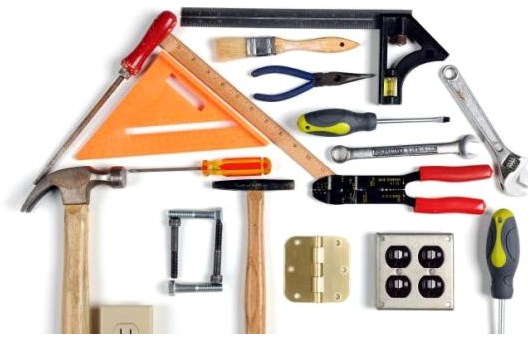For most of us, a house or flat is one of the most expensive and important investments we will ever make. Therefore, home maintenance is very important to care for this investment and prevent problems from arising that will be costly and time-consuming to fix. Preventive maintenance will also enable you to reduce your energy consumption, maximise your time and extend the useful life span of your home.
The first thing to do is arrange for regular building maintenance inspections of your home by an expert buildings contractor or real estate agent. They will be able to ensure your roof is not leaking and your walls are not cracking, for example. Not to mention all kinds of smaller issues and faults that could be potentially of concern. This way, any issues are picked up sooner rather than later, and the bill for smaller, easier repairs will not be as high. Take care to note when each inspection takes place, and the work that is generated, so that you can build up a complete record of the maintenance carried out in your home. This will be valuable information when you come to sell, or if you decide to let it out.
Areas needing to be inspected around your home’s exterior include the roof, which should be checked for broken or missing tiles. Remember to look at the chimneys, gutters and drainpipes too, to check for blockages and damage caused by nesting birds or adverse weather. Make sure that electric cables are well insulated up there and cut away any tree branches that could damage the roof. Don’t forget to include TV aerials and satellite dishes in your checks.
Moving down the building, take a look at the walls, checking for cracks in the rendering or crumbling mortar and cement between bricks. Pay special attention to wooden facades, cladding and other areas – inspect these for damp, mould and any loose or damaged boards.
Next, look at the doors and windows, checking for any leaks or breakages. Make sure the locks work properly and that the home is as secure as possible. Replace any broken panes of glass as a priority, as these can cause injuries if residents, trades people or visitors cut themselves on sharp edges and you could be liable for any compensation they seek as a direct result.
Finally, check out the electricity and plumbing, calling in experts if you feel unsure of the process yourself. Are the wires properly insulated and the fuses in good working order? Do the drains run clear? Do you need to cut away any foliage from the garden that could affect the current or water flow? Take a close look at the main panel and make sure loose cables are all connected to the right terminals. Ask a heating technician to look over any relevant systems, such as central heating or air conditioning with outside vents and units. Look for signs of damage, or evidence of leakages and get these seen to straight away.

